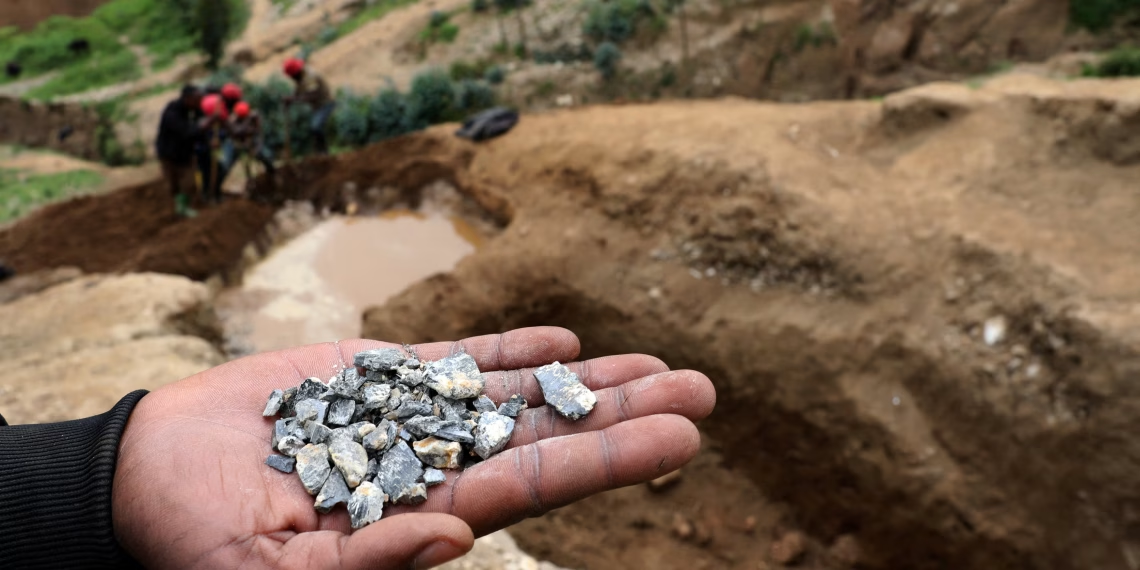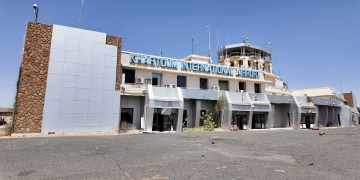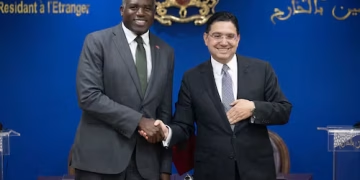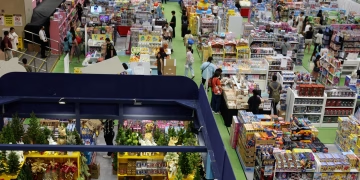What the company says
The gold-mining firm Twangiza Mining, operating in the eastern DRC, says that M23 rebels seized its gold concession in May 2025. Since then, the company claims the rebels have looted at least 500 kg of gold bullion, which at current market rates is worth about US$70 million.
According to the firm, the theft began almost immediately after the takeover. It says the first batch of over 50 kg was smuggled out “in a very short time” with help from a handful of company employees. Thereafter, it alleges losses of 100 kg or more gold each month, plus equipment and materials worth more than US$5 million.
Twangiza Mining further claims that the rebels demolished churches, expelled local residents, and used Rwandan technicians to extract geological data for expanded mining operations. Additionally, the mine’s power generation infrastructure was destroyed in a drone strike on October 15.
The company has declared force majeure at the site and says it plans to file formal complaints with the Congolese authorities and international arbitration bodies.
Location and rebel control
The mine in question lies in the South Kivu province of the DRC, a region rich in minerals and long troubled by conflict. M23, an ethnic-Tutsi-led rebel group widely reported to be backed by neighbouring Rwanda (which denies direct support), captured large swathes of territory in 2025, including key mining zones.
Since their takeover of the mining concession in May, the rebels have maintained control of the site and reportedly operate mining and transport operations via underground or secret routes to smuggle out the gold. The claim by the company is that the loot has been transported out “through underground channels”.
Why it matters
Mineral revenue and conflict funding
The looting underlines how natural-resources wealth fuels and prolongs conflict. The United Nations has previously noted that M23 already generates hundreds of thousands of dollars monthly from mineral-tax operations in rebel-held zones.
By capturing a high-value asset like the gold-mine, M23 can access direct revenue, boosting its military and administrative capabilities. This in turn makes peace deals more fragile and complicates efforts to stabilise the region.
Impacts on business and investment
For Twangiza Mining, the alleged losses constitute a major blow. Beyond the bullion value, the company has lost equipment, lost ability to operate, and faces legal and reputational risk. Foreign companies may hesitate to invest in the DRC or in rebel-held territories given such risks of seizure and theft.
Governance and human rights concerns
The company’s claims that local residents were expelled, churches demolished, and workers forced to remain on site without pay add a humanitarian dimension. These allegations raise questions about rule-of-law, corporate responsibility and the protection of civilians in mining areas.
Supply-chain and global consequences
Gold looted from conflict zones may enter illegal trade channels, undermining efforts to certify ethical sourcing. The scale of 500 kg and US$70 m worth of bullion highlights how conflict minerals remain a global supply-chain challenge.
What the company wants and what remains unclear
Twangiza Mining says it will lodge complaints with national and international authorities. It seeks restitution and accountability from the rebels, their backers and any facilitators. The firm also declared force majeure, meaning it temporarily suspends its contractual obligations until the situation stabilises.
However, many details remain unclear:
- The exact route of smuggling and final destination of the gold is not verified.
- M23 has not publicly responded to the allegations.
- The role (if any) of neighbouring states, local intermediaries or local complicity remains opaque.
- Security and humanitarian condition for workers and local residents is uncertain beyond company statements.
Broader context: Eastern DRC’s mineral conflict
Eastern DRC is home to vast reserves of gold, coltan, tin, tungsten, cobalt and other minerals vital for electronics, batteries and industry. Control over mines has long been a source of conflict. Rebel armies, militias and government forces have all exploited mining to fund operations and enrich actors.
M23’s offensive in 2025 marked one of its largest territorial gains. Taking mining concessions allows them not just to levy taxes but to extract minerals directly. The Twangiza case illustrates this transition from extract-taxer to extract-operator.
The UN and other observers have previously flagged that mineral revenue underpins armed groups and weakens governance. Without control of extractive revenue flows, the state struggles to assert authority or deliver services.
Regional and international dimension
Rwanda has repeatedly denied backing M23, but officials in the DRC and UN reports have pressed the contrary. The mineral trade from rebel-held areas often moves through neighbouring countries, complicating tracking and accountability.
Furthermore, global demand for gold and other minerals in electronics and industry provides an incentive for smuggling and illegal mining. International frameworks for supply-chain due diligence are under pressure from cases such as this.
What happens next
- Twangiza Mining will file its complaints and possibly seek compensation via international arbitration.
- The DRC government faces pressure to secure its mining territories, regulate extractive industries, hold perpetrators accountable, and restore operations.
- M23’s control over the site gives it bargaining power in peace negotiations; this may affect any cease-fires or settlement talks.
- International buyers, investors and certification bodies must reconsider risk in supply-chains linked to eastern DRC.
- Human-rights and humanitarian actors must monitor the welfare of mine-site workers, displaced residents and the broader local population affected by mining seizures.
Summary
A gold-mining company claims that the M23 rebels looted about 500 kg of gold bullion — worth approximately US$70 million — from its concession in South Kivu, DRC, since May 2025. The rebels allegedly moved the bullion with the help of insiders, destroyed infrastructure, expelled residents and halted fair operations. The case stands out as a stark example of how natural-resource wealth fuels conflict, undermines business investment and complicates peace efforts in eastern Congo. It also raises urgent questions for global supply chains, regional security and the integrity of mining governance in Africa’s richest mineral zone.








